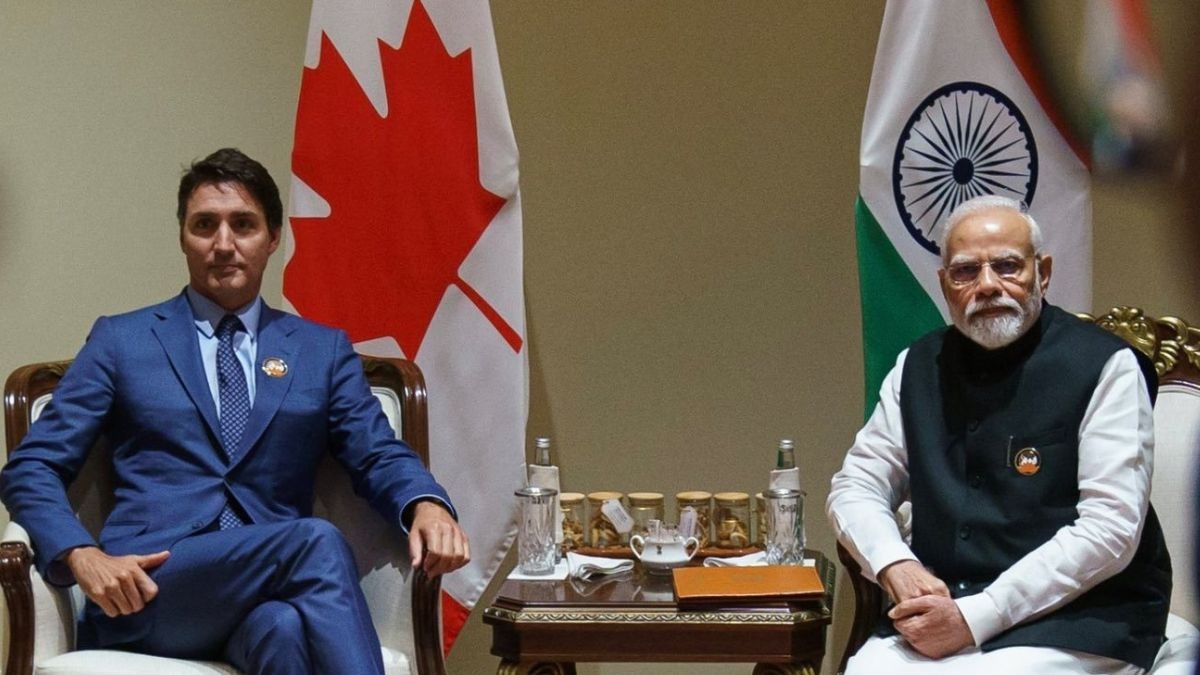Challenging Times Ahead: India-US Relations Tense Amidst Canada Diplomatic Row

Challenging Times Ahead: India-US Relations Tense Amidst Canada Diplomatic Row
In a surprising development that has sent shockwaves through diplomatic circles, US Ambassador to India, Eric Garcetti, has reportedly conveyed concerns to his team about the potential deterioration of relations between India and the United States due to an ongoing diplomatic dispute with Canada. According to a recent report by Politico, Garcetti has indicated that these tensions could lead to a period of strained ties between the two nations, even hinting at the possibility of reduced contacts between American officials and their Indian counterparts.
The unexpected revelation of Ambassador Garcetti’s remarks underscores the fragile nature of international diplomacy and the intricate web of relationships that nations must navigate in an increasingly interconnected world. The fallout from the Canada-United States dispute appears to have cast a shadow over the once-promising India-US partnership.
The exact nature of the diplomatic row between Canada and the United States remains unclear, as details have been kept under wraps by both nations. Nevertheless, its ripple effects have reached far and wide, potentially impacting India-US relations, which have seen significant strides in recent years.
It is imperative to understand the background of India-US relations to grasp the gravity of the situation. Over the past two decades, the bilateral relationship has evolved from one of mistrust and skepticism to one characterized by strategic cooperation and mutual economic interests. This transformation has been driven by shared democratic values, economic opportunities, and the need to address regional and global challenges.
Trade has been a cornerstone of this evolving partnership, with the United States being one of India’s largest trading partners. The two nations have also cooperated closely on security matters, including counterterrorism efforts and regional stability. Additionally, the United States has become a crucial ally for India in its pursuit of technological advancements and military modernization.
However, Ambassador Garcetti’s apprehensions indicate that the recent diplomatic turbulence with Canada may have created a ripple effect that could temporarily strain India-US ties. The intricacies of international diplomacy are often affected by unforeseen events, and in this case, it appears that the United States is taking precautionary measures to shield itself from any potential repercussions.
One of the most significant concerns raised by Ambassador Garcetti is the possibility of reducing contacts with Indian officials for an unspecified period. This approach, if implemented, could lead to a slowdown in diplomatic dialogue and cooperation, affecting various aspects of the bilateral relationship.
It is essential to emphasize that such temporary setbacks are not uncommon in international relations. Nations often face challenges and disagreements with their allies and partners, but the resilience of these relationships is usually a testament to the shared values and long-term interests that bind them together.
To mitigate the impact of these concerns, both India and the United States must engage in open and constructive dialogue. Transparency and effective communication are vital in addressing any misunderstandings or grievances that may have arisen from the Canada-United States dispute. Furthermore, it is crucial for both nations to reaffirm their commitment to the principles and values that have underpinned their relationship over the years.

In the realm of trade, the two nations must work diligently to ensure that economic ties remain robust and continue to benefit both economies. Trade disputes have the potential to disrupt global supply chains and hinder economic growth, which is particularly critical as countries recover from the challenges posed by the COVID-19 pandemic.
Security cooperation is another critical area that should not be neglected during these uncertain times. India and the United States share common concerns about regional stability and security threats. Maintaining a strong security partnership will be essential in addressing these challenges and promoting peace and stability in the Indo-Pacific region.
As the diplomatic landscape shifts and adapts to changing circumstances, it is worth noting that India and the United States have faced challenges before, only to emerge with stronger ties. The history of their relationship is marked by periods of cooperation, as well as moments of divergence. These experiences have allowed both nations to develop a deeper understanding of each other’s priorities and interests.
In the realm of international diplomacy, it is not uncommon for nations to recalibrate their engagement based on evolving geopolitical dynamics. The United States, as a global superpower, often finds itself balancing numerous diplomatic relationships and navigating complex international issues. This occasionally requires making strategic decisions to protect its own interests, which can have ramifications for its partners.

India, on the other hand, has pursued a policy of non-alignment and strategic autonomy in its foreign relations. This approach allows India to engage with multiple nations and adapt to changing global dynamics. While it values its partnership with the United States, India has also demonstrated its ability to maintain its foreign policy independence and pursue its national interests.
In light of these considerations, it is essential for both India and the United States to approach the current situation with patience and a long-term perspective. While there may be temporary disruptions in their relations, the underlying foundation of shared values, democratic principles, and economic interests remains strong. By fostering open and constructive dialogue, both nations can work towards resolving any issues that may have arisen and continue to build a resilient partnership that serves their mutual goals in the years to come.
In conclusion, while the specter of worsening India-US relations due to the Canada diplomatic row is a cause for concern, it is essential to remember that diplomacy is a dynamic and resilient field. Nations may encounter setbacks and disagreements, but the strength of their relationships is often measured by their ability to overcome such challenges.
Both India and the United States have a vested interest in ensuring that their partnership remains robust and continues to evolve in the face of adversity. Clear communication, cooperation, and a commitment to shared values will be crucial in navigating these turbulent waters and emerging with their relationship intact.





